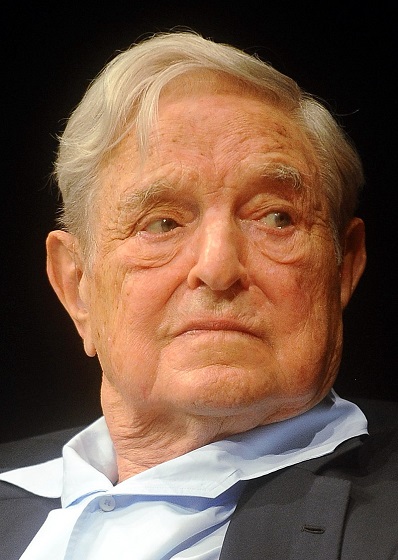From The Center Square
By Casey Harper
The U.S. House Oversight Committee is investigating why the Federal Communications Commission fast-tracked a deal that allowed a billionaire Democratic donor to buy a wide swath of American radio stations just weeks before the presidential election.
The major radio company Audacy Inc. fell into financial straits, but through a complex business deal Democratic mega donor and billionaire George Soros has gained control of the stations. Deals of this size require FCC approval, but in this case the FCC expedited the approval process.
FCC Commissioner Brendan Carr raised concerns about the deal at a Congressional hearing, telling lawmakers that “… the FCC is not following its normal process for reviewing a transaction.”
“We have established over a number of years one way in which you can get approval from the FCC when you have an excess of 25 percent foreign ownership, which this transaction does,” Carr said. ““It seems to me that the FCC is poised to create, for the first time, an entirely new shortcut.”
House Oversight Chair Rep. James Comer, R-Ky. and Rep. Nick Langworthy, R-N.Y., sent a letter to FCC Chair Jessica Rosenworcel Friday raising concerns about the deal.
“Despite the unprecedented nature of this action, the FCC majority has apparently decided to approve licenses on an accelerated timeframe for a company in which George Soros has a major ownership stake, and with stations in 40 media markets reaching ‘more than 165 million Americans,’” the letter said. “By all appearances, the FCC majority isn’t just expediting, but is bypassing an established process to do a favor for George Soros and facilitate his influence over hundreds of radio stations before the November election.”
Critics of the deal say it gives too much power to a heavily political, and liberal, billionaire just before the election.
“I have no idea why Soros would do this unless it was to manipulate the thinking of Americans and the information they listen to,” author and former member of the George W. Bush administration Mike Gonzalez told The Center Square.
“Conservative talk radio is huge, and there is no left wing talk radio because it’s just not interesting,” said Gonzalez, who is now at the Heritage Foundation. “Conservative talk radio is one of the few communications that conservatives have not a monopoly on but have a strong handle on, and he has bought stations that have Mark Levin and Sean Hannity and Dana Loesch and Glenn Beck.”
Critics also point out that Soros’ business partners in the deal include significant funding from sources overseas.
“The Audacy, Inc. deal, which will lead to Audacy, Inc. being partially ‘directly or indirectly controlled’ by foreign individuals or entities holding ‘more than one-fourth of the capital stock’ will require FCC approval to determine whether ‘the public interest will be served by the refusal or revocation of such license,’” the letter said. “In carrying out this statutory mandate under the Communications Act, FCC has years-long established processes and procedures for adjudicating broadcast licenses in such situations, most recently updated in 2016.”
Other wealthy media owners have faced scrutiny for potential abuse of their ownership power, such as billionaire Jeff Bezos when he purchased the Washington Post. However, Soros’ influence over so many radio stations may have even more influence over the country than one of the major papers, which Americans usually see as having a certain political leaning.
Soros is one of the most strategic and prolific funders of liberal organizations in the U.S.
“I don’t know why else he would plunk a pile of money this size unless it was to try to have influence over the thinking of Americans,” Gonzalez continued, adding that “this guy is committed to left-wing causes.”
















